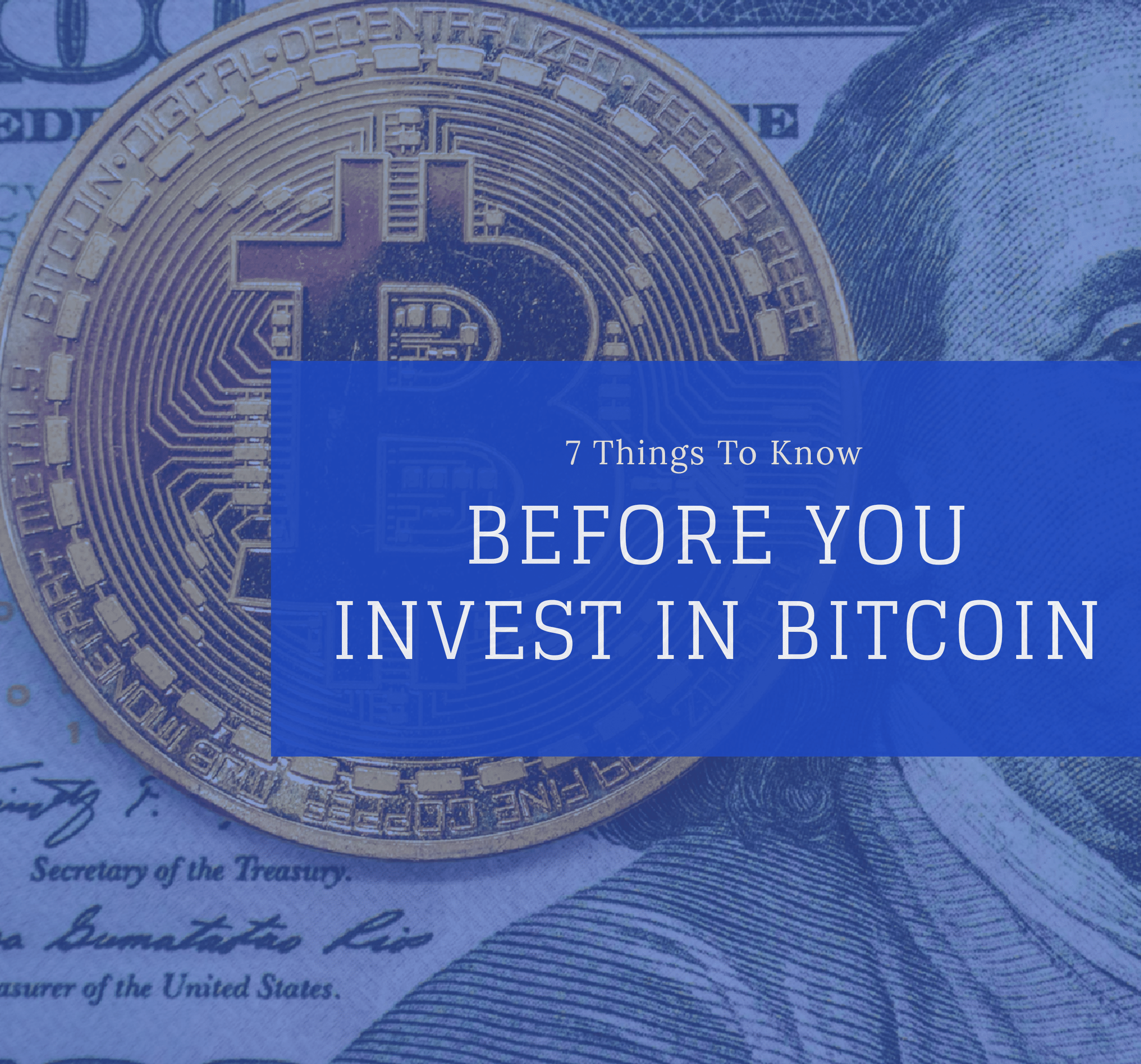Bitcoin and other cryptocurrencies have delivered eye-popping returns in 2020 and 2021. All kinds of crypto – including what started as a joke and meme, Dogecoin – are receiving heightened media attention as a result.
The value of Bitcoin and cryptocurrencies has risen sharply in past months. But that’s just it: we’re looking at past performance. If you want to invest in Bitcoin, you should really be asking about the future.
As I wrote in late-2017, there is a lot of opportunity for confusion when discussing cryptocurrency. Before we dig into what you need to know before you invest in Bitcoin, let’s make sure we’re all starting on the same page with the basic facts.
A Lightning-Round Primer on Cryptocurrencies
Cryptocurrencies are digital, deregulated currencies based on blockchain technology. You can use cryptocurrencies to buy and sell goods and services with any vendors or providers who accept crypto as payment. Right now, however, most people trade cryptocurrency itself in hopes of securing a profit in a highly speculative market.
There are thousands of cryptocurrencies, but Bitcoin is the original and best-known. The purpose of this article is not to tout Bitcoin specifically, or to take a stance on whether it’s better or worse than other cryptocurrencies that exist.
For simplicity’s sake, I’m going to focus the commentary here specifically on Bitcoin. You could accurately substitute the word “cryptocurrency” for “Bitcoin” in many instances throughout this article, but not all.
With that out of the way, let’s take a look at the future of Bitcoin. There are a few specific shortcomings that should give any investor pause before buying.
The Case for Bitcoin as a Currency
For much of the past decade, the primary case for owning Bitcoin was that it would replace government money. Nearly all Bitcoin’s proponents now agree that is extremely unlikely.
Traditional currencies fulfill three purposes:
- Medium of exchange (instrument or system used to facilitate the sale, purchase, or trade of goods between parties)
- Unit of account (standard monetary unit of measurement of value, cost of goods, services, assets, liabilities, etc)
- Store of value (function of an asset that can be saved, retrieved, and exchanged at a later date, and be predictably useful when retrieved; a store of value is anything that retains purchasing power into the future)
Bitcoin fails as a medium exchange for a number of reasons. For starters, it’s wildly volatile, which makes it impractical to use in most everyday transactions.
People often laugh about the guy who bought two pizzas for 10,000 Bitcoin in 2010 because it would now be worth over half a billion dollars. Using any medium of exchange shouldn’t cause potential for regret. My family gets pizza delivered once a week using US dollars and never once have I needed to worry about whether using my currency would be a mistake.
Even worse, exchanging Bitcoin for goods and services triggers taxes. The IRS treats Bitcoin as property subject to short- and long-term capital gains. If you buy a pizza with Bitcoin that appreciated in value, you will owe capital gains tax.
Short-term capital gains (for property held less than 12 months) is taxed at your ordinary income tax rate. Long-term capital gains apply to positions held more than 12 months and are taxed at 15% and 20% for married couples with income of at least $80,000. Married couples with income above $250,000 will also owe a 3.8% net investment income tax.
Bitcoin is also not a viable unit of account because it’s not effectively used to quote prices or contracted amounts. And it’s status as a store of value is shaky at best.
National currencies such as the U.S. dollar or Euro derive their prices from the underlying economic activity of countries that issue them. Bitcoin prices are not based on economic fundamentals, but rather depend on speculation about the adoption and use of cryptocurrencies.
Such speculation fuels a great deal of uncertainty. That, in turn, translates into the type of high volatility that undermines the idea of Bitcoin being a store of value.
It’s also worth pointing out that a store of value, by definition, has an expected real rate of return equal to zero.
What About Investing in Bitcoin as a Bet on Blockchain?
Another popular narrative for Bitcoin buyers in the past decade is that the purchase represents a bet, either on blockchain or an early-stage investment in emerging technology that would change the way people buy and sell goods or transfer money internationally.
This is compelling, until you consider Bitcoin is simply far too inefficient. It’s capacity to process payments is less than ten per second, which means it falls short of realistically meeting aspirations to become the next Visa or PayPal.
The idea of buying cryptocurrency to “buy blockchain” doesn’t really make sense either.
Owning Bitcoin doesn’t give someone any ownership in the underlying blockchain. Even if it did, the blockchain technology that underlies Bitcoin does not power the same blockchains used by the wide range of governments, corporations, and financial institutions utilizing blockchain technology.
The idea that blockchain might revolutionize the world is valid, but “buying blockchain” would be like somehow buying “http” which is the foundation of any data exchange on the Web – it might have been part of the function, but the real commodity was the specific URLs.
Bitcoin Is Not a Commodity, Either
Speaking of, many Bitcoin fans do view Bitcoin as a valuable commodity. This is a newer case, perhaps helped by the Commodity Futures Trading Commission declaring cryptocurrencies fall under the definition of commodity in the Commodity Exchange Act and, thus, subject to its jurisdiction.
On one hand, that’s understandable; both Bitcoin and commodities values are determined by demand, acceptance, and usage. However, Bitcoin is not a physical raw material that carries any useful value (whereas traditional commodities like gold and oil do).
The idea that Bitcoin is a form of “digital gold” seems to be gaining traction. But this couldn’t be further from reality.
(Even if Bitcoin was the new gold, that’s not much of an argument: I’d say most people shouldn’t invest in gold either.)
If anything, Bitcoin is more closely aligned with collectibles like art, baseball cards, and Beanie Babies that have aesthetic or emotional value, but that derive their pricing from scarcity in supply and level of demand.
Should You Invest in Bitcoin To Diversify Your Portfolio?
Building a diversified portfolio requires you to combine exposures with various risk and return characteristics that behave differently over time.
By combining exposures that zig with others that zag, the volatility of a portfolio’s overall returns is reduced. That, in turn, allows the portfolio’s returns to compound at higher rates.
(If you compare two portfolios with the same average return and different levels of volatility, the lower volatility portfolio will have higher compounded returns and a greater ending value than the portfolio with higher volatility.)
Of course, every new exposure added in the name of diversification comes with a diminishing marginal benefit, so you must carefully weigh the expected net benefits versus the degree of uncertainty.
Bitcoin certainly behaves differently than traditional asset classes such as stocks and bonds, but it doesn’t offer any expected premium for bearing the risk of Bitcoin’s price movements. That increases the already high uncertainty around the net benefit from including such an exposure to a portfolio.
Because I’m generally more concerned with implementing a bad idea than missing out on a good one (a preference for minimizing Type I error for all you quant geeks), I’m not a believer in Bitcoin as a strategic diversifier.
If You Invest in Bitcoin, Start Small
Bitcoin prices depend mostly on speculation about its adoption and use. While the increase in institutional adoption has helped drive Bitcoin’s price higher, it still lacks an enduring economic rationale that would allow anyone to expect Bitcoin to generate positive real returns over time.
Perhaps that will change over time. Or, perhaps you don’t care.
If you insist on adding Bitcoin to your portfolio, consider the relative market weight of that asset class compared to the relative weights of your other portfolio assets.
The global stock and bond markets have market capitalizations of roughly $70 trillion and $130 trillion, respectively. As of right now, Bitcoin’s market value is nearly $1 trillion. An asset allocator’s starting point might be giving 0.50% of a portfolio to Bitcoin ($1 trillion divided by $201 trillion).
There are other reasons to keep your exposure relatively small, too. For starters, 20% or larger price swings are not uncommon. Last year Bitcoin lost half its value in two days and just last week it fell by 20% in a day. Bitcoin has also had several, much more significant crashes, losing up to 85% of its value in hours or days.
Such volatility would have a painfully negative impact on your overall portfolio’s return if you have too large a position.
And of course, there is also the non-zero probability that Bitcoin’s value falls to zero. Bitcoin is still a relatively new asset that may be at risk of future regulation or restrictions.
If you have a thoughtfully-crafted financial plan, it’s unlikely you will require an asset to go absolutely bonkers in order to meet your goals. The most strategic plans focus on minimizing investment mistakes instead of earning outsized returns, so speculative investments such as Bitcoin should be allocated accordingly.
How to Keep Yourself Honest If You Invest in Bitcoin
If you still feel strongly about buying Bitcoin, I suggest that you come up with a system to hold yourself accountable to following a set strategy that removes emotional decision-making as much as possible.
One of the practices I incorporate in making investment decisions is writing down the reasoning behind my investment decisions. This forces me to clearly define my beliefs about a particular exposure. It also provides me with honest feedback about my abilities as a prognosticator.
With something as narrative-driven as Bitcoin, I’d highly encourage you take time to write out answers to these simple questions:
- What is your return objective for your investment?
- What is your time horizon?
- How does this fit into your financial plan?
- What is your thesis for making an investment? How will you determine if you are right or wrong? Can you tolerate severe losses in the process (remember, Bitcoin has already fallen at least 85% on several occasions)?
- What are your expected range of outcomes and what probability would you assign to each scenario?
- How will your investment change your life in a bullish scenario?
- How will this change your life if this investment goes to zero?
Doing this helps you both define the “why” behind your investment, and helps set reasonable expectations so that you minimize regret your decision if it goes poorly. Putting your initial assumptions and strategy in writing also guards against overconfidence in your ability to predict the future if your bet pays off for reasons unrelated to your original thesis.
The excitement around investing in Bitcoin and other cryptocurrencies seems to only increase by the day. This article should not be construed as either an endorsement or a rejection of cryptocurrency. Instead, I hope this gives you more information to help you carefully think through the potential impact of including a highly speculative investment to your portfolio.
Will you invest in Bitcoin? If so, what is your driving factor?
…
RESOURCE: Do you want to make smart decisions with your money? Discover your biggest opportunities in just 9 questions with my Financial Wellness Assessment.















